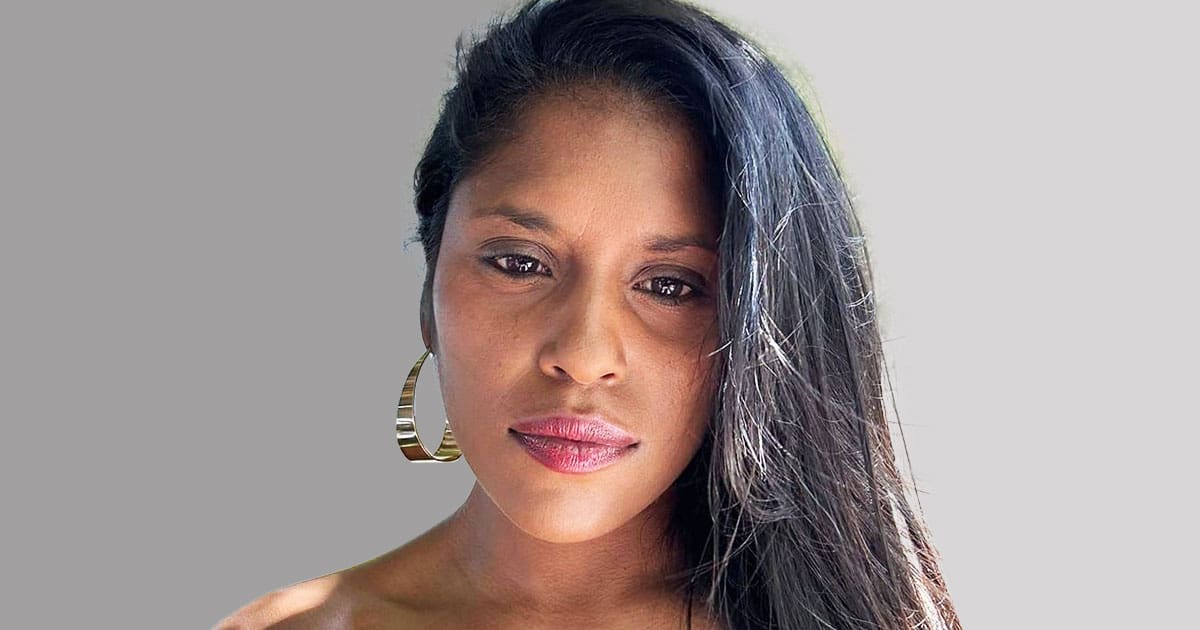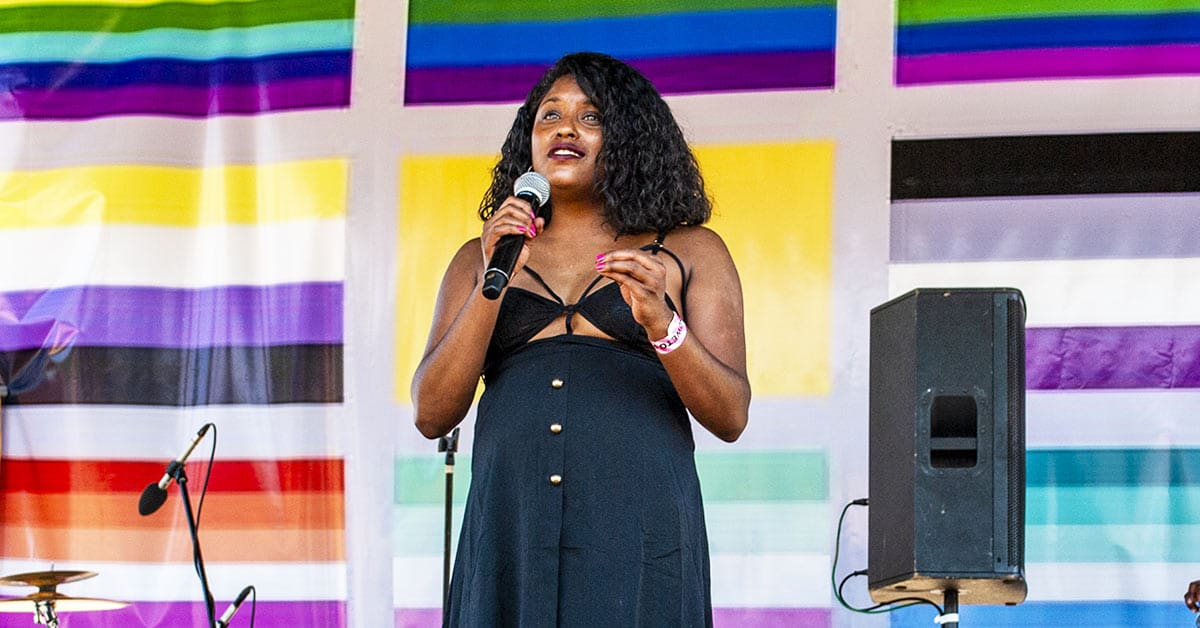“We Are Not a Footnote”: Roché Kester on Lesbian Visibility, Power and Healing

Roché Kester is a fearless force for justice, creativity, and lesbian visibility
As part of Lesbian Visibility Week (21-27 April), MambaOnline speaks to one of South Africa’s most committed and fearless voices in queer activism: Roché Kester.
A poet, writer, and Black queer feminist, Roché has built a life around community action, creative resistance, and bold leadership in a country where lesbian voices remain marginalised and misunderstood.
From her early days as a student activist to shaping national policy, her work tells a story of resilience, vision, and transformative impact.
A Legacy Rooted in Activism and Art
Roché’s journey into activism began at university, where her passion for writing and gender justice collided in powerful ways.
“Whilst attending University, I volunteered as a HIV Peer educator at UWC and also lent my time to the Gender Equity Unit on campus where I wrote for, performed in and eventually directed the feminist Edu drama called Reclaiming the P…word.”
This led to the creation of Grounding Sessions, a political poetry platform that merged activism with creative expression. At the same time, she was on air as a producer and presenter for The Salon on Bush Radio, a groundbreaking LGBTQIA+ radio show that later won an EVH Media Award.
Policy Work and Political Impact
Roché’s activism extended into the corridors of Parliament, where she helped spotlight the need to amend discriminatory laws. “I was fortunate to have a hand in bringing awareness to the Civil Union Amendment Act (2020) which was assented into law by President Cyril Ramaphosa.”
She later served as the Hate Crimes Manager at OUT LGBT Well-being, a role that earned her the Feather Awards’ Role Model of the Year (2021). In a historic move, she was appointed the first Director: LGBTIQA+ and Others in the Gauteng Premier’s Office, helping to integrate LGBTQIA+ access across provincial departments.
Roché currently serves as Programme and Advocacy Manager with the Forum for the Empowerment of Women (FEW), a leading queer women advocacy group and convener of the annual Soweto Pride event.
Why Lesbian Visibility Still Matters
Roché doesn’t mince her words when reflecting on the meaning of Lesbian Visibility Week. “It aims to bring awareness to issues of discrimination, femicide and gender-based violence and inequitable structural and administrative oppressions that plague Lesbian Women.”
She adds that, “The needs of Lesbian women are often conflated with cishet women and this thus furthers marginalisation of this group.”

Roché Kester speaking at Soweto Pride 2021
Harmful Myths and Ongoing Violence
She confronts the myths that continue to endanger lesbians in South Africa. “One of the biggest misconceptions is that they can somehow be ‘fixed’ from lesbianism if the ‘right’ man were to come around. This misconception is what sometimes leads to the assault and homophobic rape of lesbian women.”
She also critiques reductive views of lesbian relationships: “Another dominant narrative is that in a lesbian relationship that binary gender roles exist with one woman enacting the role of ‘a man’ and another enacting the ‘role of a woman’. This claim is false… Although lesbians, in their gender expression may fall on the spectrum of feminine or masculine, they are still women.”
A Collective Moment of Change
In 2018, Roché joined thousands across the country in the #TotalShutDown movement against GBV. “Lesbians and non-binary persons helped draft the memorandums issued to President Cyril Ramaphosa, which became the benchmark for the National Strategic Plan (NSP) on Gender-Based Violence in South Africa.”
“This collective action ensured the inclusion of LGBTIQA+ persons as part of the NSP programming.”
Representation Is Changing—But Danger Remains
“Lesbian narratives have been hypersexualised in the past. In addition, the dominant narratives have also involved the homophobic rape of lesbians,” she explains.
“Of late there have been attempts to showcase lesbian women as family orientated persons, capable business and professional people as well as individuals who are charitable and giving in nature.”
Still, violent realities persist. “Homophobic rape and hate crimes that target lesbians remain rife in South Africa, particularly in the township arena… The Hate Crimes Act has not as yet been implemented… and this affects the sentencing and the nature of how crimes are categorised.”
Advice to Young Lesbians: Know Your Worth and Your Rights
To those still finding their place, Roché urges connection and knowledge. “Find your community and your tribe… In doing so you immediately create safe spaces for yourself to navigate your sexual orientation.”
She adds, “Educate and empower yourself with knowledge… as it relates to Sexual Orientation, Gender Identity and Expression and Sex Characteristics to better aid yourself and LGBTIQA+ persons holistically in the unfortunate cases when your human rights may be threatened or be in jeopardy.”
Visibility Must Be Daily, Not Just Symbolic
“Cross-movement visibility at this time will assist in amplifying the voices and lives of Lesbian Women. Shedding light in the inequities that exist in the healthcare system, workplace and criminal proceedings will go a long way to ascertain access, dignity and safety for lesbian women.”
In every line and every action, Roché Kester embodies what it means to be visible, vocal, and victorious. Her story is not just one of survival—it’s one of change. And that’s what Lesbian Visibility Week is truly about.
Leave a Reply